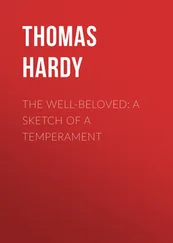Thomas Hardy - Wessex Tales
Здесь есть возможность читать онлайн «Thomas Hardy - Wessex Tales» — ознакомительный отрывок электронной книги совершенно бесплатно, а после прочтения отрывка купить полную версию. В некоторых случаях можно слушать аудио, скачать через торрент в формате fb2 и присутствует краткое содержание. Жанр: foreign_antique, foreign_prose, на английском языке. Описание произведения, (предисловие) а так же отзывы посетителей доступны на портале библиотеки ЛибКат.
- Название:Wessex Tales
- Автор:
- Жанр:
- Год:неизвестен
- ISBN:нет данных
- Рейтинг книги:5 / 5. Голосов: 1
-
Избранное:Добавить в избранное
- Отзывы:
-
Ваша оценка:
- 100
- 1
- 2
- 3
- 4
- 5
Wessex Tales: краткое содержание, описание и аннотация
Предлагаем к чтению аннотацию, описание, краткое содержание или предисловие (зависит от того, что написал сам автор книги «Wessex Tales»). Если вы не нашли необходимую информацию о книге — напишите в комментариях, мы постараемся отыскать её.
Wessex Tales — читать онлайн ознакомительный отрывок
Ниже представлен текст книги, разбитый по страницам. Система сохранения места последней прочитанной страницы, позволяет с удобством читать онлайн бесплатно книгу «Wessex Tales», без необходимости каждый раз заново искать на чём Вы остановились. Поставьте закладку, и сможете в любой момент перейти на страницу, на которой закончили чтение.
Интервал:
Закладка:
Mrs. Shepherd Fennel assented, and made room for the self-invited comer, who, having got completely inside the chimney-corner, stretched out his legs and his arms with the expansiveness of a person quite at home.
‘Yes, I am rather cracked in the vamp,’ he said freely, seeing that the eyes of the shepherd’s wife fell upon his boots, ‘and I am not well fitted either. I have had some rough times lately, and have been forced to pick up what I can get in the way of wearing, but I must find a suit better fit for working-days when I reach home.’
‘One of hereabouts?’ she inquired.
‘Not quite that – further up the country.’
‘I thought so. And so be I; and by your tongue you come from my neighbourhood.’
‘But you would hardly have heard of me,’ he said quickly. ‘My time would be long before yours, ma’am, you see.’
This testimony to the youthfulness of his hostess had the effect of stopping her cross-examination.
‘There is only one thing more wanted to make me happy,’ continued the new-comer. ‘And that is a little baccy, which I am sorry to say I am out of.’
‘I’ll fill your pipe,’ said the shepherd.
‘I must ask you to lend me a pipe likewise.’
‘A smoker, and no pipe about ‘ee?’
‘I have dropped it somewhere on the road.’
The shepherd filled and handed him a new clay pipe, saying, as he did so, ‘Hand me your baccy-box – I’ll fill that too, now I am about it.’
The man went through the movement of searching his pockets.
‘Lost that too?’ said his entertainer, with some surprise.
‘I am afraid so,’ said the man with some confusion. ‘Give it to me in a screw of paper.’ Lighting his pipe at the candle with a suction that drew the whole flame into the bowl, he resettled himself in the corner and bent his looks upon the faint steam from his damp legs, as if he wished to say no more.
Meanwhile the general body of guests had been taking little notice of this visitor by reason of an absorbing discussion in which they were engaged with the band about a tune for the next dance. The matter being settled, they were about to stand up when an interruption came in the shape of another knock at the door.
At sound of the same the man in the chimney-corner took up the poker and began stirring the brands as if doing it thoroughly were the one aim of his existence; and a second time the shepherd said, ‘Walk in!’ In a moment another man stood upon the straw-woven door-mat. He too was a stranger.
This individual was one of a type radically different from the first. There was more of the commonplace in his manner, and a certain jovial cosmopolitanism sat upon his features. He was several years older than the first arrival, his hair being slightly frosted, his eyebrows bristly, and his whiskers cut back from his cheeks. His face was rather full and flabby, and yet it was not altogether a face without power. A few grog-blossoms marked the neighbourhood of his nose. He flung back his long drab greatcoat, revealing that beneath it he wore a suit of cinder-gray shade throughout, large heavy seals, of some metal or other that would take a polish, dangling from his fob as his only personal ornament. Shaking the water-drops from his low-crowned glazed hat, he said, ‘I must ask for a few minutes’ shelter, comrades, or I shall be wetted to my skin before I get to Casterbridge.’
‘Make yourself at home, master,’ said the shepherd, perhaps a trifle less heartily than on the first occasion. Not that Fennel had the least tinge of niggardliness in his composition; but the room was far from large, spare chairs were not numerous, and damp companions were not altogether desirable at close quarters for the women and girls in their bright-coloured gowns.
However, the second comer, after taking off his greatcoat, and hanging his hat on a nail in one of the ceiling-beams as if he had been specially invited to put it there, advanced and sat down at the table. This had been pushed so closely into the chimney-corner, to give all available room to the dancers, that its inner edge grazed the elbow of the man who had ensconced himself by the fire; and thus the two strangers were brought into close companionship. They nodded to each other by way of breaking the ice of unacquaintance, and the first stranger handed his neighbour the family mug – a huge vessel of brown ware, having its upper edge worn away like a threshold by the rub of whole generations of thirsty lips that had gone the way of all flesh, and bearing the following inscription burnt upon its rotund side in yellow letters
THERE IS NO FUN
UNTiLL i CUM.
The other man, nothing loth, raised the mug to his lips, and drank on, and on, and on – till a curious blueness overspread the countenance of the shepherd’s wife, who had regarded with no little surprise the first stranger’s free offer to the second of what did not belong to him to dispense.
‘I knew it!’ said the toper to the shepherd with much satisfaction. ‘When I walked up your garden before coming in, and saw the hives all of a row, I said to myself; “Where there’s bees there’s honey, and where there’s honey there’s mead.” But mead of such a truly comfortable sort as this I really didn’t expect to meet in my older days.’ He took yet another pull at the mug, till it assumed an ominous elevation.
‘Glad you enjoy it!’ said the shepherd warmly.
‘It is goodish mead,’ assented Mrs. Fennel, with an absence of enthusiasm which seemed to say that it was possible to buy praise for one’s cellar at too heavy a price. ‘It is trouble enough to make – and really I hardly think we shall make any more. For honey sells well, and we ourselves can make shift with a drop o’ small mead and metheglin for common use from the comb-washings.’
‘O, but you’ll never have the heart!’ reproachfully cried the stranger in cinder-gray, after taking up the mug a third time and setting it down empty. ‘I love mead, when ’tis old like this, as I love to go to church o’ Sundays, or to relieve the needy any day of the week.’
‘Ha, ha, ha!’ said the man in the chimney-corner, who, in spite of the taciturnity induced by the pipe of tobacco, could not or would not refrain from this slight testimony to his comrade’s humour.
Now the old mead of those days, brewed of the purest first-year or maiden honey, four pounds to the gallon – with its due complement of white of eggs, cinnamon, ginger, cloves, mace, rosemary, yeast, and processes of working, bottling, and cellaring – tasted remarkably strong; but it did not taste so strong as it actually was. Hence, presently, the stranger in cinder-gray at the table, moved by its creeping influence, unbuttoned his waistcoat, threw himself back in his chair, spread his legs, and made his presence felt in various ways.
‘Well, well, as I say,’ he resumed, ‘I am going to Casterbridge, and to Casterbridge I must go. I should have been almost there by this time; but the rain drove me into your dwelling, and I’m not sorry for it.’
‘You don’t live in Casterbridge?’ said the shepherd.
‘Not as yet; though I shortly mean to move there.’
‘Going to set up in trade, perhaps?’
‘No, no,’ said the shepherd’s wife. ‘It is easy to see that the gentleman is rich, and don’t want to work at anything.’
The cinder-gray stranger paused, as if to consider whether he would accept that definition of himself. He presently rejected it by answering, ‘Rich is not quite the word for me, dame. I do work, and I must work. And even if I only get to Casterbridge by midnight I must begin work there at eight to-morrow morning. Yes, het or wet, blow or snow, famine or sword, my day’s work to-morrow must be done.’
‘Poor man! Then, in spite o’ seeming, you be worse off than we?’ replied the shepherd’s wife.
Читать дальшеИнтервал:
Закладка:
Похожие книги на «Wessex Tales»
Представляем Вашему вниманию похожие книги на «Wessex Tales» списком для выбора. Мы отобрали схожую по названию и смыслу литературу в надежде предоставить читателям больше вариантов отыскать новые, интересные, ещё непрочитанные произведения.
Обсуждение, отзывы о книге «Wessex Tales» и просто собственные мнения читателей. Оставьте ваши комментарии, напишите, что Вы думаете о произведении, его смысле или главных героях. Укажите что конкретно понравилось, а что нет, и почему Вы так считаете.












